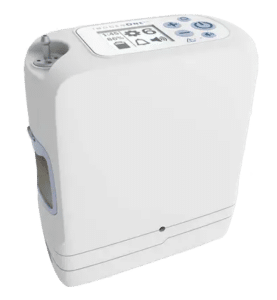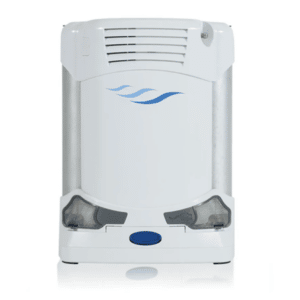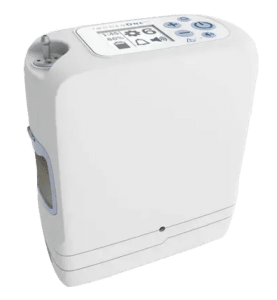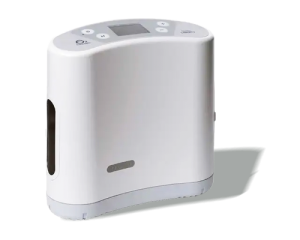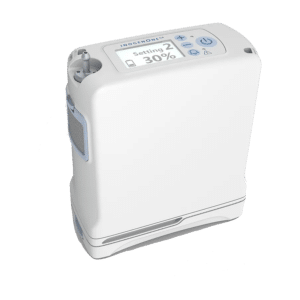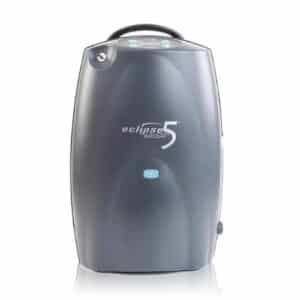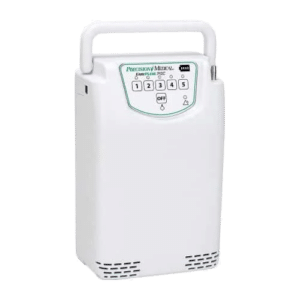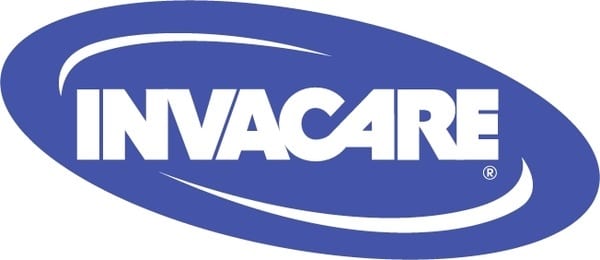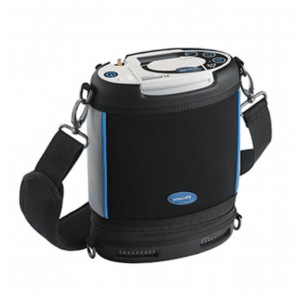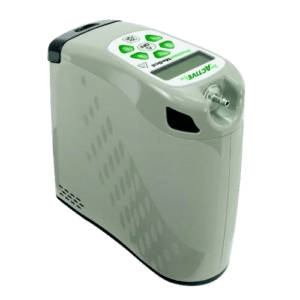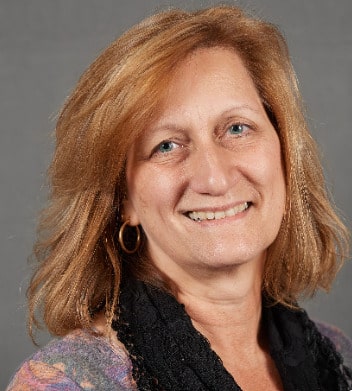The Inogen Rove 6 is a small, lightweight device with a long battery life. This machine can be worn with a shoulder strap as you walk to and from your flight and is easily stored underneath your seat or by your side on the plane. It is also approved for use on planes by the Federal Aviation Administration (FAA), as is every POC we reviewed.
9 Best Portable Oxygen Concentrators in 2025: Our Expert Picks
Key Takeaways
- We picked the Inogen Rove 6 as the best portable oxygen concentrator due to its lightweight design, quiet noise level, and long battery life.
- Portable concentrators offer a refill-free alternative to oxygen tanks.
- Portable oxygen concentrators require a prescription from a doctor, who can recommend the appropriate oxygen output and flow type.
- The price of portable oxygen concentrators ranges from $2,000–$4,000, but Medicare and private insurance may cover part of the cost.
If your doctor has prescribed supplemental oxygen, you may choose a portable oxygen concentrator (POC) or a home oxygen concentrator (HOC), depending on your doctor’s recommendation. A POC, also called a portable oxygen machine, provides safe, effective delivery of oxygen to people with low oxygen levels while they are away from home, according to the U.S. Food and Drug Administration (FDA). You may use a POC while running errands, traveling, or doing other activities outside the house.
Finding the best portable oxygen concentrator for your needs can be confusing—especially if you’re buying one for the first time. We researched the best POCs on the market to help you choose. We dug into information on pricing, features, battery life, and more to help you find the best model for you.
Our top picks: researched and expert-approved
A quick look at the best portable oxygen concentrators in 2025
- Inogen Rove 6: Most Discreet
- CAIRE Freestyle Comfort: Best Battery Life
- Oxlife Liberty2: Best Continuous and Pulse Flow
- Inogen One G4: Most Portable
- CAIRE SeQual Eclipse 5: Highest Oxygen Output
- Precision Medical EasyPulse 5-Liter: Best Warranty
- Invacare Platinum Mobile: Most Durable
- Precision Medical Live Active Five: Most Comfortable to Carry
Best portable oxygen concentrators in 2025
Our expert experience with the Inogen Rove 6
We found the long battery life of the Inogen Rove 6 to be a game-changer for mobility. If you use a double battery for your Rove 6, you’ll have up to 13 hours of power on Setting 1 and nine hours on Setting 2. The Rove 6 also has a maximum oxygen output of 1.26 liters per minute (LPM) and six different flow settings to suit your oxygen needs.
One thing we really appreciate is the Inogen Connect app. It makes it much easier to check the battery life and change our concentrator settings on the app instead of pressing buttons on the machine itself.
A customer review on the Oxygen Concentrator Store said, “I’ve used it one day so far, and all is well with the G5. I chose it because of the longer battery life it has. I was tired of feeling like a prisoner in my home. I wasn’t able to be out for more than 2 hours without carrying extra tanks with me. Now I can do more things with the Rove 6.”
If you’re looking for a reliable and convenient portable oxygen concentrator, we highly recommend the Inogen Rove 6. It’s a great option for anyone who needs continuous flow oxygen while on the go.
Inogen has an additional brand called OxyGo, selling the same machines under a different name. The Inogen Rove 6 is the same machine as the OxyGo Next. The cost is the same; the only difference is the OxyGo Next comes with a five-year warranty, and the Rove 6 comes with a three-year warranty.
Earlier this year, Inogen rebranded the One G5 to the Rove 6 to comply with European regulations. While the product is the same, the name has changed. You can still rent the One G5, but only the Rove 6 is available for purchase.
Read our full Inogen review.
Our expert experience with the CAIRE Freestyle Comfort
We found the extended battery life on the CAIRE Freestyle Comfort worth the extra cost. While it costs an additional $589 for the 16-cell battery, it allows for 16 hours between charges. If you purchase the machine and the extended battery, the total cost is $3,584.
A feature making the CAIRE Freestyle Comfort unique is its leading technology. We liked the ultra-sensitive breath detection, which automatically changes the flow to match your breathing rate.
We also appreciate CAIRE’s Comfort Zone service program, which also sets the brand apart. Comfort Zone includes the following features:
- Live online orientation with a CAIRE representative to help you set up your machine.
- Customer support seven days a week.
- A replacement POC will be sent to your home within three business days if yours malfunctions.
The last point is unique among portable oxygen concentrator companies; no other brand we’ve reviewed provides this type of warranty or service. The replacement device will become your new unit, and the warranty from your older device will transfer over. Comfort Zone is included with the purchase of a CAIRE Freestyle Comfort unit at no extra cost. We haven’t had any issues, but it’s great to know we’re covered.
The CAIRE Freestyle Comfort can also be purchased as the ARYA Portable Oxygen Concentrator. The machines are the same but sold under different brand names and at different prices. The Arya POC costs $3,495, while the Freestyle Comfort costs $2,995.
A customer review on the Oxygen Concentrator Store page said, “After spending two days researching for a concentrator replacement with the right balance between weight and battery run time, choosing the CAIRE Freestyle Comfort was easy. And it was a pleasant experience talking to the representative. I now have a smaller unit that easily fits into my walker’s seat compartment and has five output flow levels. Very pleased.”
The Freestyle Comfort is a good device if you don’t want to worry about changing batteries every few hours while out and about. Explore more in our full CAIRE review.
Our expert experience with the Oxlife Liberty2
We recommend the Oxlife Liberty2 because it offers both pulse-delivered and continuous flow. It has nine pulse settings and a high maximum oxygen output of 2 LPM on continuous flow. This lightweight device weighs just over 6 pounds and comes with a carry case.
We found the Oxlife Liberty2 to be great for someone who needs continuous flow oxygen while they sleep, as this model has a rechargeable battery that can be charged while in use on every setting.
The Oxlife Liberty2 is the highest portable oxygen concentrator at $3,594, but it is regularly discounted by 17 percent. It’s definitely an investment, but we think it’s worth it. One downside of this model is that a warranty isn’t included with the purchase, but we think it’s still a great value.
Our expert experience with the Inogen One G4
We found that the G4 is less powerful than other models because it is so small, with a maximum oxygen output of only 0.63 LPM. The other Inogen model we reviewed on this list, the Inogen One G5, has an output of 1.26 LPM.
According to our testing, the G4 single battery lasts only about 2 hours and 40 minutes, depending on the setting. If you’re heading out for more than a quick errand, you’ll want to have the double battery or bring an extra one for backup. You also have the option to charge your machine in the car between errands.
We can connect the G4 to our smartphone using the free Inogen Connect app. The app allows us to use our phone to check the battery status and change device settings.
Some customer reviews from the Oxygen Concentrator Store and Trustpilot reported the device can overheat. When we asked a representative at the Oxygen Concentrator Store about this, they said POCs can be susceptible to overheating when the vent is covered up, which can happen if the machine is placed in the carry bag incorrectly or placed too close to another object for a long time. Overheating prevents it from functioning properly, and it may damage the machine. When we place the machine down or in the carry bag, we always ensure the vent isn’t covered.
We found most customer reviews from the Oxygen Concentrator Store and Trustpilot on this product were positive. Reviewers praised the device’s light weight, which allows them to run errands with ease. One reviewer from the Oxygen Concentrator Store said, “Within 24 hours, I had the unit in hand, and I was just so excited. I had my freedom again! It has kept my oxygen consistent. I am already looking to get a smaller battery for extra time while I’m out. Being a small person, I don’t think I could carry a much heavier machine.”
Read more about this oxygen concentrator in our detailed Inogen review.
Our expert experience with the CAIRE SeQual Eclipse 5
Due to its high oxygen output, we found that this concentrator is larger and heavier than other devices and cannot be carried in a bag. The SeQual Eclipse 5 is 19.3 inches tall, 12.3 inches wide, 7.1 inches deep, and weighs 18.4 pounds. The device comes with a wheeled cart to make it easier to move around. Some customer reviews on the Oxygen Concentrator Store reported that they prefer this machine because they can roll it around on a cart instead of in a shoulder bag.
Customer reviews vary regarding the machine’s noisiness: some reported the machine is louder than expected, while others reported it is quieter than other machines they’ve used. The noise level of the SeQual Eclipse 5 varies based on its setting. At 3 LPM on continuous flow, the noise level is 48 decibels—comparable to the noise level of the average office. [2]
At the pulse dose setting of 3, the noise level is 40 decibels—comparable to background noise in a library. [2]
A customer reviewer on the Oxygen Concentrator Store wrote, “I had another high oxygen unit that did not work for me, and I returned it. The other high-flow oxygen machine was extremely noisy, but this one is quiet. When I take it shopping, I put it in the cart. It is heavy to lift, but I can still do it. I like this machine, and this is much easier after using big oxygen tanks to go out. The [SeQual Eclipse 5] has allowed me the freedom to go on trips again.”
Our expert experience with the EasyPulse POC
Our testing found the EasyPulse has a user-friendly design with large, easy-to-read buttons, and a top handle to move it from place to place when not in its carrying case. The maximum oxygen output is 0.78 LPM, which is lower than the other machines we reviewed.
This machine is the heaviest pulse dose machine in our review, weighing 6.6 pounds. If you are looking for a smaller device, the EasyPulse is available in a 3-liter option weighing 4.9 pounds and ranges in cost from $975 to $1,118. The cost varies with either machine depending on if you purchase a backpack or an external battery. The 3-liter machine has three pulse settings, while the 5-liter machine has five settings. The 5-liter machine is quieter than the 3-liter machine (40.6 decibels compared to 42 decibels). On Setting 1, the 3-liter device has a battery life of 5.5 hours, and the 5-liter machine has 4.7 hours.
Our expert experience with the Invacare Platinum Mobile
One of our favorite benefits of the Invacare Platinum Mobile is the carrying bag, which can convert into a backpack, messenger bag, or purse. The machine is also lightweight, weighing 4.8 pounds.
The battery compartment is located at the top of the device, making it easy to access on the go without having to remove it from the carrying case. The Invacare Platinum Mobile comes with a single battery, providing up to four hours of charge. If you anticipate being out of the house for longer than four hours, you can purchase an additional battery, giving you eight hours of running time on Setting 1.
A customer review on the Oxygen Concentrator Store stated, “I travel a lot internationally, and a year ago, I realized I had been suffering from high-altitude pulmonary edema for years. Now, with my oxygen concentrator, I get off a long flight feeling great and ready to go. No more international doctor visits. It’s never overheated, and some airlines let me plug in. It’s been awesome.”
Our expert experience with Precision Medical Live Active
We love that the Live Active Five has a simple design with few buttons and an easy-to-read LCD screen featuring large text. We can access the battery from the top of the device, so we do not need to take it out of the carrying case when changing the batteries.
As a bonus feature, we can also connect the machine to a computer or smartphone through Bluetooth to troubleshoot the unit if we encounter any problems. The Live Active Five has audible and visual alarms if there are problems like:
- Low battery
- Blocked cannula
- Low oxygen purity
- No breath detected
- High breath rate
- External power failure
If the machine doesn’t detect your breath, it will automatically deliver a pulse of oxygen. The Live Active Five also has five pulse settings and a maximum oxygen output of 1 LPM.
Oxygen Concentrator Store customer service
Some of the oxygen concentrators in this review are available through the online retailer Oxygen Concentrator Store. Pricing estimates are subject to change. You can contact the customer service department in the following ways:
- Phone: (844-885-9530), available 365 days a year on the following schedule:
- 6 a.m. to 9 p.m. MT Monday through Friday
- 7 a.m. to 7 p.m. MT Saturday
- 8 a.m. to 7 p.m. MT Sunday
- Email: (service@amsrco.com)
- Online chat: On the OCS support page
- Contact form: Submit an online ticket on the contact form, and a representative will respond within one business day.
The Oxygen Concentrator Store website also has a detailed product support page with information on cleaning, maintenance, and use of portable oxygen concentrators.
Our customer service experience
We called the Oxygen Concentrator Store to learn more about the brands and models in this list. It took less than 30 seconds to get a representative on the line. He was friendly, helpful, and knowledgeable about every model we asked about.
He informed us all portable oxygen machines sold through the Oxygen Concentrator Store come with a free seven-day trial period. If you find the unit you’ve purchased has mechanical problems, is hard to use, or just isn’t a good fit for you, simply call the store to receive a shipping label. Then, you can send the unit back (at your own cost) and exchange it for a different one.
Shipping takes about three to five business days, but Oxygen Concentrator Store also offers two-day and overnight shipping for an additional cost.
After sharing details of the various models over the phone, the representative offered to email us the information and gave us his direct phone number for any future questions. He also said even if we didn’t buy a unit from the Oxygen Concentrator Store, he would be happy to answer questions and provide help in the future. We were very pleased with the customer service experience; it felt like we were learning about portable oxygen concentrators rather than enduring a high-pressure sales call.
What is a portable oxygen concentrator?
People with lung issues, such as sleep apnea, COPD, and cystic fibrosis, may use a portable oxygen concentrator as a means of inhaling supplementary oxygen when they are away from home. These machines are typically lightweight and small, making them easy to transport.
Portable oxygen concentrators provide supplemental oxygen by removing oxygen from the air, compressing it, and removing the nitrogen. After that, the oxygen is stored in a tank where it can be delivered through a tube for breathing.
How does a portable oxygen concentrator work?
Oxygen concentrators take in air from the environment, filter out nitrogen, and deliver oxygen to the person using the device. [1]U.S. Food and Drug Administration. Pulse oximeters and oxygen concentrators: What to know about at-home oxygen therapy. Found on the internet at https://www.fda.gov/consumers/consumer-updates/pulse-oximeters-and-oxygen-concentrators-what-know-about-home-oxygen-therapy The oxygen is usually delivered through a cannula sitting beneath the nose. These devices are different from oxygen tanks because oxygen concentrators use electrical pumps to concentrate oxygen from outside, according to an article in the journal Breathe. In contrast, oxygen tanks have a set amount of oxygen stored inside the container requiring the tanks to be replaced with another filled container when empty. [3]Hardavella G, et al. Breathe. September 2019. Oxygen Devices and Delivery Systems. Found on the internet at https://breathe.ersjournals.com/content/15/3/e108
For more information on POCs, the American Lung Association has a webpage with helpful videos showing how to use your device. [4]American Lung Association. Getting started with a portable oxygen concentrator. Found on the internet at https://www.lung.org/lung-health-diseases/lung-procedures-and-tests/oxygen-therapy/getting-started-portable-oxygen-concentrator
Oxygen flow types
Portable oxygen concentrators deliver either a continuous flow of oxygen, measured in liters per minute, or a pulse flow (also called intermittent flow). Pulse flow delivery systems give a puff of oxygen every time you breathe.
Some concentrators can deliver oxygen by both pulse or continuous flow, depending on the setting your doctor prescribes. Other devices only provide one type of flow. Most portable concentrators offer only pulse flow settings.

When buying a portable oxygen machine, it’s important to know which type of flow you need and the amount of oxygen (in LPM) you’re prescribed. If you’re unsure of these details, check with your health care provider.
Who should use a portable oxygen concentrator?
If you need supplemental oxygen—also known as oxygen therapy—you’re not alone. The American Thoracic Society estimates 1.5 million adults in the United States use oxygen therapy. [5]Jacobs SS, et al. Annals of the American Thoracic Society. December 2018. Optimizing Home Oxygen Therapy: An Official American Thoracic Society Workshop Report. Found on the internet at https://www.atsjournals.org/doi/10.1513/AnnalsATS.201809-627WS
People with a variety of conditions may benefit from supplemental oxygen. According to the American Lung Association, these conditions include chronic obstructive pulmonary disease (COPD), pulmonary fibrosis, pneumonia, asthma, cystic fibrosis, and sleep apnea. [6]American Lung Association. Oxygen therapy. Found on the internet at https://www.lung.org/lung-health-diseases/lung-procedures-and-tests/oxygen-therapy
If you need extra oxygen, you may enjoy the freedom a portable unit can give you. With POCs, you can go out with friends and family, travel, and enjoy activities outside of the house.
Staying active and connecting with people is important for our health and well-being. According to a study published in the Journal of Gerontology, socially active older adults have better physical health and emotional well-being. [7]Fingerman KL, et al. The Journals of Gerontology. Jan. 18, 2019. Variety is the Spice of Late Life: Social Integration and Daily Activity. Found on the internet at https://academic.oup.com/psychsocgerontology/article/75/2/377/5292329 A portable oxygen concentrator can help you keep in touch with friends and family by allowing you to leave the house and socialize.
POCs may not suit every person’s oxygen needs. Before you purchase an oxygen machine, talk to your health care provider. They will tell you what type of machine you need and what to look for.
Things to consider before you purchase a portable oxygen machine
Before you purchase a POC, you should consider different factors to decide which model is the best for your needs.
- Your current and future oxygen needs: Check your prescription to see what your doctor has written for oxygen amount and flow type. You may also want an adjustable oxygen output machine in case your oxygen needs change.
- Battery life: Consider how long you’ll need to use your POC when you leave the house or if you plan to go on long trips.
- Warranty length and type of coverage: Warranties vary among manufacturers of portable oxygen concentrators in terms of length and what they cover. Make sure you find out specific information on the warranty before you purchase.
- Size and weight: You may need a small, lightweight machine if you can only carry a few pounds at a time. While most machines come with a carry bag or rolling cart, you may need to move it without the bag or cart from time to time.
- Noise level: All POCs create sound as they convert air to medical-grade oxygen. Typically, the noise level is about the same as a room with background noise, around 45-50 decibels. But some oxygen concentrators are quieter than others. For instance, the CAIRE Freestyle Comfort only emits about 38 decibels of sound.
- Buying vs. renting: Determining whether you should buy or rent your POC depends on your needs. Those who only temporarily require oxygen therapy or don’t want to deal with maintenance or repair costs may benefit from renting their device. While buying may be the best option for long-term needs.
- Cleaning and maintenance: All POCs should be wiped down daily as part of a regular care routine. Some devices need more maintenance than others, requiring regular filter changes or deeper cleaning. Before purchasing, look into your device’s maintenance guidelines to determine if you can keep up with its care.

If you see over-the-counter oxygen concentrators in your search, the American Lung Association warns these machines may not meet your oxygen needs. They are not FDA-approved, don’t require a prescription, and may not fit your specific prescription. Talk to your doctor if you are unsure if the oxygen machine is right for you. [4] American Lung Association. Getting started with a portable oxygen concentrator. Found on the internet at https://www.lung.org/lung-health-diseases/lung-procedures-and-tests/oxygen-therapy/getting-started-portable-oxygen-concentrator
How much do portable oxygen concentrators cost?
In this review, the portable oxygen concentrators cost between $2,125 and $3,200. This is about the average price range for a new POC.
Online retailers, like the Oxygen Concentrator Store, may have financing and “buy now, pay later” options through services like CareCredit, PayPal, or Affirm, allowing you to pay off your purchase over time. Oxygen Concentrator Store pricing estimates shared in this article are subject to change.
You can also reduce the cost by purchasing a used oxygen machine through the Oxygen Concentrator Store. Speak with a customer service representative to find out what used machines are available.
Are portable oxygen concentrators covered by insurance?
Some private insurance companies will pay for part or all of the costs of oxygen concentrators, but plans vary quite a bit. Contact your insurance provider to understand what your plan covers.
Oxygen equipment, including portable oxygen concentrators, is also eligible for reimbursement if you have a flexible spending account (FSA) or health savings account (HSA).
Are portable oxygen concentrators covered by Medicare?
Oxygen concentrators are considered durable medical equipment (DME)ⓘ Durable medical equipment (DME): Medical equipment expected to last at least three years, prescribed for in-home use for a medical reason. , and a rental device may be partially covered under Medicare Part B. Medicare will cover part of the cost of renting in-home oxygen equipment and accessories if you have a prescription from a doctor, a diagnosis of low blood oxygen levels, and other measures to raise your blood oxygen levels were unsuccessful. [8]Medicare.gov. Oxygen equipment and accessories. Found on the internet at https://www.medicare.gov/coverage/oxygen-equipment-accessories
If you do purchase a portable oxygen concentrator, Medicare will help pay for certain oxygen-related supplies and services such as tubing, masks, nasal cannulas, maintenance, and repairs. See Medicare.gov for more information. [8]Medicare.gov. Oxygen equipment and accessories. Found on the internet at https://www.medicare.gov/coverage/oxygen-equipment-accessories
Are Amazon portable oxygen concentrators safe?
Portable oxygen concentrators are used to treat medical conditions, so it’s a purchase you should make with a reputable medical supply retailer, not on Amazon. Amazon sellers cannot sell medical-grade oxygen concentrators, both portable and for at-home use, because they can’t sell items requiring a prescription. Doctors stress that it’s unsafe to make this kind of purchase on Amazon. If you’re looking for a portable oxygen concentrator on Amazon to save money, consider a certified pre-owned unit from a reputable retailer instead.
Traveling with portable oxygen machines
Traveling with an oxygen machine requires careful preparation for your health and safety. Below are some tips to keep in mind before you go.
Table 2, Comparison of the best portable oxygen concentrators
|
Inogen Rove 6
Check Price
|
CAIRE Freestyle Comfort
Check Price
|
Oxlife Liberty2
Check Price
|
Inogen One G4
Check Price
|
CAIRE SeQual Eclipse 5
Check Price
|
CAIRE SeQual Eclipse 5
Check Price
|
Precision Medical EasyPulse 5-Liter
Check Price
|
Invacare Platinum Mobile
Check Price
|
Precision Medical Live Active Five
Check Price
|
|
|---|---|---|---|---|---|---|---|---|---|
| Best For | Most Discreet | Best Battery Life | Best Continuous and Pulse Flow | Most Portable | Highest Oxygen Output | Highest Oxygen Output | Most Affordable | Most Durable | Easiest to Carry |
| Cost* | $3,295 | $2,395 | $2,995 | $2,744 | $3,200 | $3,200 | $2,082–$2,334 | $2,495 | $2,310–$2,562 |
| Max oxygen output | 1260 ml/min | 1050 mL/min of oxygen | 2 LPM | 0.6630 ml/minute | 3000 ml/min | 3000 ml/min | 0.8 | 1000 ml/min | 1.0 |
| Battery Life | Up to 12 hours | 8.0–16.0 | Up to 4.5 hours | 1.2 – 5 | 1.3-5.4 | 1.3-5.4 | 4.7 | 4.0–8.0 | 6.5 |
| Weight | 4.8 | 5 | 6.36 | 2.8 | 18.4 | 18.4 | 6.6 | 4.8 | 5 |
*Last updated January 2025
**Can vary depending on flow setting and use of single- or double-battery
How we chose the best oxygen concentrators
We consulted with geriatric care experts to learn more about portable oxygen concentrators (POCs) and how they can enhance users’ quality of life. Based on our expert consultations, user survey, and own research, we determined the following factors to be important for our readers when shopping for a POC unit:
- Cost
- Ease of use
- Oxygen delivery method
- Number of settings
- Weight
- Battery life
- Time to recharge the battery
- Warranty
- Availability (all devices available online or in brick-and-mortar stores)
We had all of our selections medically reviewed by an expert in the field to ensure each brand and model is appropriate for our readers’ needs.
Bottom line
Supplemental oxygen is sometimes necessary to relieve respiratory or cardiac disease symptoms and improve a person’s quality of life. It doesn’t mean your normal activities have to end if you need oxygen therapy. A portable oxygen concentrator can allow you to move freely around your house, visit friends and family, travel, run errands, or do any other activity you normally do.
If you love traveling and need a device with decent battery life, you may opt for the Inogen Rove 6 or the CAIRE Freestyle Comfort.
POCs can go a long way in helping you continue to enjoy outings with your family and friends. Ultimately, the best portable oxygen concentrator for you depends on your preferences, price point, and specific oxygen needs.
Frequently asked questions
According to the Oxygen Concentrator Store, most portable oxygen concentrators last four to seven years before needing to be replaced. The better you maintain your machine, the longer it will last.
Yes, you need a prescription from your doctor to use and purchase a portable oxygen concentrator. You should not use an oxygen machine if you haven’t received a prescription from your doctor because it may cause serious health effects.
A new portable oxygen concentrator may range from $2,000 to $4,000. The portable oxygen concentrators in this review range from $2,081.52 to $3,200. The cost may be lower if you decide to purchase a used machine.
The most reliable portable oxygen concentrator is the CAIRE Freestyle Comfort because we found it to have the best battery life. Depending on the battery used and the setting chosen, this model lasts between 8 and 16 hours.
A portable oxygen concentrator and a portable oxygen machine are one and the same. Both names describe a device providing oxygen therapy through a concentrated flow of oxygen.
We have found that less expensive oxygen concentrators have fewer features than more expensive options. In general, cheaper machines are also less powerful. Recently, concerns have been raised about machines sold online costing only a few hundred dollars, with the COPD Foundation warning that many of the claims being made by over-the-counter machines were not evaluated by the FDA.
The best portable oxygen concentrator for you depends on your preferences, tolerability, and oxygen needs. Talk to your health care provider about which type of machine to look for.
Portable oxygen concentrators are considered durable medical equipment. If you’re renting a device and you have a prescription from a doctor, a diagnosis of low blood oxygen levels, and other measures to raise your blood oxygen levels weren’t successful, it may be partially covered under Medicare Part B.
If you purchase a portable oxygen concentrator, Medicare will help pay for specific supplies and services, including tubing, masks, nasal cannulas, maintenance, and repairs. Visit Medicare.gov to learn more.
POCs may be available to purchase on Amazon, but doctors advise against it. Amazon sellers can’t sell medical-grade oxygen concentrators, both portable and for at-home use, because they can’t sell items requiring a prescription. If you’re looking for a portable oxygen concentrator on Amazon to save money, consider a certified pre-owned unit from a reputable retailer instead.
Have questions about this review? Email us at reviewsteam@ncoa.org.
Sources
- U.S. Food and Drug Administration. Pulse oximeters and oxygen concentrators: What to know about at-home oxygen therapy. Found on the internet at https://www.fda.gov/consumers/consumer-updates/pulse-oximeters-and-oxygen-concentrators-what-know-about-home-oxygen-therapy
- International Noise Awareness Day. Common noise levels – how loud is too loud? Found on the internet at https://noiseawareness.org/info-center/common-noise-levels/
- Hardavella G, et al. Breathe. September 2019. Oxygen Devices and Delivery Systems. Found on the internet at https://breathe.ersjournals.com/content/15/3/e108
- American Lung Association. Getting started with a portable oxygen concentrator. Found on the internet at https://www.lung.org/lung-health-diseases/lung-procedures-and-tests/oxygen-therapy/getting-started-portable-oxygen-concentrator
- Jacobs SS, et al. Annals of the American Thoracic Society. December 2018. Optimizing Home Oxygen Therapy: An Official American Thoracic Society Workshop Report. Found on the internet at https://www.atsjournals.org/doi/10.1513/AnnalsATS.201809-627WS
- American Lung Association. Oxygen therapy. Found on the internet at https://www.lung.org/lung-health-diseases/lung-procedures-and-tests/oxygen-therapy
- Fingerman KL, et al. The Journals of Gerontology. Jan. 18, 2019. Variety is the Spice of Late Life: Social Integration and Daily Activity. Found on the internet at https://academic.oup.com/psychsocgerontology/article/75/2/377/5292329
- Medicare.gov. Oxygen equipment and accessories. Found on the internet at https://www.medicare.gov/coverage/oxygen-equipment-accessories
- Do Over-The-Counter Portable Oxygen Concentrators Actually Work? The Results of a COPD Foundation Study. COPD Foundation. Found on the internet at: https://www.copdfoundation.org/COPD360social/Community/COPD-Digest/Article/1839/Do-Over-The-Counter-Portable-Oxygen-Concentrators-Actually-Work-The-Results-of.aspx

